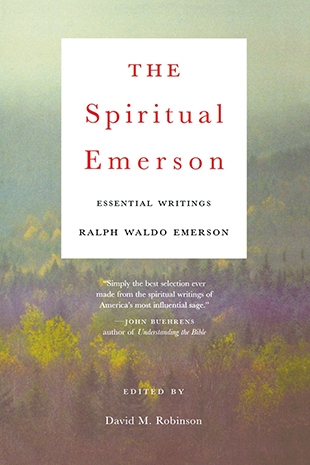The spiritual teachings of Ralph Waldo Emerson (1803-1882) continue to inspire the quests of those open to the vibrancies of soul, spirit, nature, wisdom, ethical action, and personal transformation. David M. Robinson is a leading authority on Emerson and the New England Transcendentalist movement. In this superb work, he lays out some of the distinguishing features of the spiritual vision of this minister, essayist, and poet.
Emerson taught school and followed his father into the ministry. But six years later, after the death of his wife and convinced that he was not suited to the rigors of parish life or the doctrines of religion, he left the ministry in 1832. "God builds his temple in the heart on the ruins of churches and religions," he boldly wrote. He developed a theory of spiritual life "that affirmed the access of every man and woman to a transcendental inner power." He referred to this power as the soul.
Robinson describes Emerson's success as an independent lecturer and essayist in a time when people were looking for new spiritual directions. This innovator offered a vision based on three interrelated principles: inwardness, unity, and right action. Of course, he was far ahead of his times with this mystical approach that blended an appreciation of nature, solitude, self-examination, and ethical engagement. Robinson doesn't forget to mention that this ambitious teacher also worked on a magazine called the Dial, which published the first series of translations of Asian religious texts in America.
Robinson's astute insights into Emerson's complex spiritual vision are spelled out in introductions to his essays written from 1836 - 1866 — Nature, the Divinity School Address, Self-Reliance, Compensation, The Over-Soul, Circles, Experience, The Fugitive Slave Law, Worship, Essential Principles of Religion, and Character. In one of his most controversial essays, Emerson states: "Yourself a newborn bard of the Holy Ghost, cast behind you all conformity, and acquaint men at first hand with Deity."
